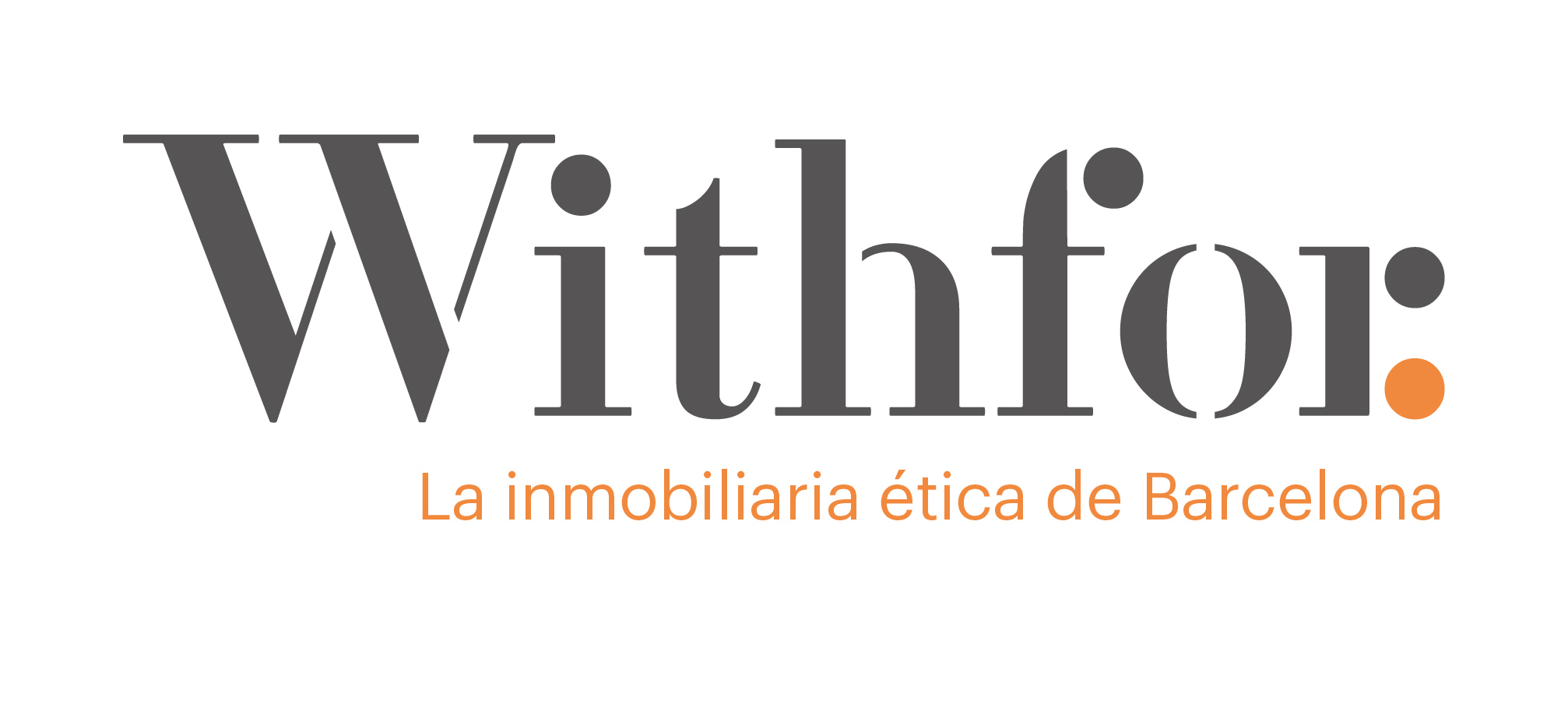



WITHFOR

Catalonia, Spain
November 2021
Other professional, scientific & tech
Service with Minor Environmental Footprint
Spain
Withfor es la agencia inmobiliaria ética de Barcelona. Nace a partir de la convicción de que los conceptos ética e inmobiliaria pueden y deben ir de la mano. Defendemos la transparencia, confianza y honestidad tanto con los clientes como con nuestro propio equipo, y desde nuestro quehacer inmobiliario buscamos generar un impacto positivo en la sociedad. Somos profesionales inmobiliarios internacionales, con gran experiencia y versatilidad. Igual que detrás de cada cliente hay una persona con aspiraciones y emociones, en el equipo Withfor destaca, por encima de todo, la calidad humana, que se pone a disposición de cada persona para acompañarles en todo el proceso de compraventa o alquiler de una propiedad. Porque apostamos por la redistribución, hemos creado un fondo social denominado "Withfor Family", desde el que destinamos el 1.25% de cada operación cerrada a la Fundación Roure, entidad arraigada a Ciutat Vella que atiende las necesidades básicas de las personas mayores y familias. Juntos, podemos llegar más lejos, y así es como nos hemos convertido en la inmobiliaria ética de Barcelona, abriendo de par en par la puerta a los valores éticos que nos hacen ser y trabajar en consonancia con nuestros principios. Estamos contigo y para ti.
Overall B Impact Score
Governance 17.6
Governance evaluates a company's overall mission, engagement around its social/environmental impact, ethics, and transparency. This section also evaluates the ability of a company to protect their mission and formally consider stakeholders in decision making through their corporate structure (e.g. benefit corporation) or corporate governing documents.
What is this? A company with an Impact Business Model is intentionally designed to create a specific positive outcome for one of its stakeholders - such as workers, community, environment, or customers.
Governance 17.6
Governance evaluates a company's overall mission, engagement around its social/environmental impact, ethics, and transparency. This section also evaluates the ability of a company to protect their mission and formally consider stakeholders in decision making through their corporate structure (e.g. benefit corporation) or corporate governing documents.
What is this? A company with an Impact Business Model is intentionally designed to create a specific positive outcome for one of its stakeholders - such as workers, community, environment, or customers.
Workers 32.3
Workers evaluates a company’s contributions to its employees’ financial security, health & safety, wellness, career development, and engagement & satisfaction. In addition, this section recognizes business models designed to benefit workers, such as companies that are at least 40% owned by non-executive employees and those that have workforce development programs to support individuals with barriers to employment.
Community 18.5
Community evaluates a company’s engagement with and impact on the communities in which it operates, hires from, and sources from. Topics include diversity, equity & inclusion, economic impact, civic engagement, charitable giving, and supply chain management. In addition, this section recognizes business models that are designed to address specific community-oriented problems, such as poverty alleviation through fair trade sourcing or distribution via microenterprises, producer cooperative models, locally focused economic development, and formal charitable giving commitments.
Environment 9.6
Environment evaluates a company’s overall environmental management practices as well as its impact on the air, climate, water, land, and biodiversity. This includes the direct impact of a company’s operations and, when applicable its supply chain and distribution channels. This section also recognizes companies with environmentally innovative production processes and those that sell products or services that have a positive environmental impact. Some examples might include products and services that create renewable energy, reduce consumption or waste, conserve land or wildlife, provide less toxic alternatives to the market, or educate people about environmental problems.
Customers 3.7
Customers evaluates a company’s stewardship of its customers through the quality of its products and services, ethical marketing, data privacy and security, and feedback channels. In addition, this section recognizes products or services that are designed to address a particular social problem for or through its customers, such as health or educational products, arts & media products, serving underserved customers/clients, and services that improve the social impact of other businesses or organizations.